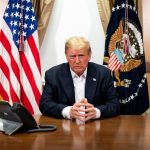The ongoing debate over a potential ban on TikTok is generating passionate opinions, with young users, especially teens and young adults, rallying against any restrictions that could interrupt their endless scroll of dance videos and life hacks. On the other hand, there’s a growing chorus of conservative voices loudly advocating for the U.S. Supreme Court to intervene. They aim to shove ByteDance, TikTok’s Chinese parent company, right out of the U.S. market through the legal system. It’s a classic clash of priorities: national security versus the whims of Generation Z.
Leading the charge is former Vice President Mike Pence, playing the part of a digital crusader alongside nearly two dozen state attorneys general. They have filed amicus briefs to convince SCOTUS that TikTok must go, raising alarms about the app’s ties to the Chinese Communist Party and its potential to undermine American interests. Meanwhile, President-elect Donald Trump has also chimed in, suggesting that the Supreme Court should tread carefully before waving the ban hammer on TikTok, presenting a surprisingly nuanced view on the complicated dance between free speech and national security.
Exclusive—Peter Schweizer: Why Beijing Wants Americans to Keep Using TikTok https://t.co/4TsxveKw9V
— Peter Schweizer (@peterschweizer) January 15, 2025
While many forget to ask the most pertinent question, it’s imperative to ponder how the Chinese Communist Party feels about all of this. The folks in Beijing are reportedly leveraging TikTok as one of their secret weapons in what they consider an information war against the United States. CCP insiders have even dubbed TikTok a “modern-day Trojan Horse,” effectively an unwitting accomplice in their grand infiltration plan.
Their military strategists pitch TikTok not just as innocent entertainment but as a highly refined strategy for influencing the mindset of the youth across the globe. With their short, engaging videos, the CCP believes they’re engaging in a form of psychological warfare that aims to shift American cultural values without the audacity of an all-out military confrontation. Organizations in China have even confessed that capturing the hearts and minds of younger generations through digital platforms is paramount for achieving their insidious objectives. Who knew that a 15-second dance video could be a weapon of mass influence?
Beyond the blaring alarms of national security, TikTok stands accused of being as addictive as the worst carnival game. Chinese strategists understand that emotional manipulation can be far more effective than blunt political messaging. They’ve incited a battle for the American psyche, where entertainment acts as bait and their ideology creeps in through the back door—implanted in the minds of unsuspecting users. Their ultimate goal? To shape a generation that sees the world through the lens of Communist Party propaganda, one viral video at a time.
Trump, despite his mixed feelings about TikTok, doesn’t quite need the app; instead, it is TikTok that finds itself in desperate need of his political support. The CCP’s propaganda machinery would love nothing more than to undermine any pro-American leaders like Trump, making the app’s ties inherently hostile to truly conservative agendas. For the sake of national security—and perhaps a touch of sanity—it may be high time to treat TikTok as the digital adversary it has proven to be and shut down this threat before it entangles young minds deeper in the foreign agenda of the Chinese Communist Party.




